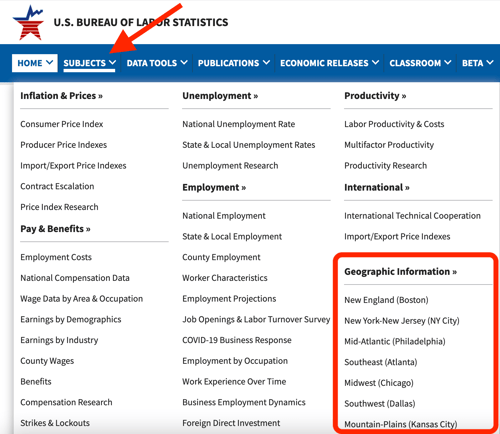Product marketing is easily one of the most cross-functional (and busy) roles in an organization. Product marketers have to juggle the messaging and positioning of products, lead product launches and help drive adoption, manage competitive intelligence programs, develop sales enablement materials, and so on. In other words, multitasking – strategically – is the name of the game for product marketers.
We asked product marketing pros – what piece of product marketing career advice do you hold sacred? In today’s blog, we’ll explore advice from the pros at Tomorrow.io, Atlassian, Domino Data Lab, and more.
Get your copy of the 2021 PMA Salary Report >>
1. Always stay connected with your customers and internal teams
To be successful in product marketing, you have to know your customers inside and out. Not only does that help you position products better, but you can better empathize and identify pain points to predict customer needs.
Steve Klein, Product & Growth Lead at LaunchNotes, said, “The most important part of product marketing is market. Truly intimately knowing the customer and what their pain is and what they're doing now to solve that pain. You won't do a good job with positioning, messaging, and helping inform the product team with what to build next unless you really know your customers' pain.”
Bingo! Your product roadmap and messaging will fall flat if you don’t deeply understand the challenges at hand. A great way to get a sense of common pain points is by joining prospective calls with sales reps and onboarding calls with customer success managers. Join these calls consistently, and you’ll have a much better grasp on needs and expectations.
Gareth Goh, Senior Product Marketing Manager at Tomorrow.io, added, “Account management and customer success should be your BFFs. They're the gateway to product adoption, product feedback, customer testimonials, etc. All the key things you need to succeed in your job.”
Collaboration amongst departments will not only help you do your job better, but it’ll expand your knowledge base to position your product more effectively. By teaming up, you can show your customers exactly how your product helps them. Shaun Pinney, a Product Marketer at Atlassian, had another piece of advice on how to show your product’s value to customers:
“A good lesson I learned is to focus on showing your customer what the product you sell does and how it does it. This could be a simple overview video or a monthly demo webinar. Show it in action, show the problems it solves and make it easy for someone to find it on your website.”
You could be the best writer in the world and your messaging could still fall flat. Showing the value of your offering through video can make a difference in customers’ understanding of your product capabilities. If you don’t have an internal videographer yet, it might be time to invest!
2. Work towards overarching goals and ruthlessly prioritize
With so much on their plate, product marketers must set clear goals, connecting to key company objectives, to stay on course.
Bob Laurent, Senior Director of Product Marketing at Domino Data Lab, shared “One of my mentors used to talk all the time about eliminating ‘Random Acts of Marketing’ to focus on coordinating activities toward a common goal. Seems simple enough now, but over the years it's really helped prioritize what I (and my team) should be focused on.”
Marketing teacher and former Senior Product Marketing Manager at Webgility, Dekker Fraser, added, “My CEO once asked me ‘What would 10x the business?’. This really helped me avoid a lot of fruitless optimization efforts.”
Ensuring your product marketing initiatives align with your company’s overall goals will help you prioritize your tasks, maximize your impact, and grow the bottom line. Having a strategic plan in place is more valuable than a list of one-off requests from stakeholders at your company – but this is often easier said than done when the asks start piling up.
3. Always be listening
Listening is key to success in any role, but for product marketing, in particular, it’s instrumental for both your depth of knowledge of the market as well as your understanding of your customers.
When Aaron Stillman, Director of Storytelling at AB Tasty, was asked to share advice, he expressed that “For me, it was → speak less and listen more → listen more to internal stakeholders, users, buyers, customers, prospects, analysts, prospecting calls, renewal calls, session recordings, etc. Build your subject matter expertise and market knowledge so when you communicate it’s full of rich, meaningful, impactful information.”
Spela Sedej, former Product Manager at SunContract, echoed this saying, “Listen to your customers when they talk about what their issue is and don’t push with what your product is in figures but what problem does it solve.”
Based on these pieces of advice, it’s time to grab your notebook and start listening to (lots of) external calls. Ask your customers the tough questions, analyze every detail of win/loss interviews, join as many prospective calls as possible – I think you get the point. To effectively articulate the value of your product, you must have strong listening skills and continuously want to learn more about your industry and customers.
Stay on top of your product marketing game
The overarching goal of product marketing is to prove that your product can solve customers’ problems, right? This is only possible if you deeply understand your target persona, align your efforts with overarching company goals, and keep your ears open for valuable nuggets of intel. You should also leverage resources such as the Product Marketing Alliance (PMA), product marketing peer groups, LinkedIn groups, and conferences and meetups.
We’ll be honest, though–the role of product marketing is always evolving, and so is its average salary. Do you know how your background, skills, and salary stack up to your peers? As you leverage these pieces of advice in your role, be sure to check out the PMA’s Product Marketing Salary Report (sponsored by Crayon) to ensure you’re also maximizing your earning potential.

Seeing is believing! Check out Crayon for yourself.
Take a Product TourRelated Blog Posts
Popular Posts
-
 The 8 Free Market Research Tools and Resources You Need to Know
The 8 Free Market Research Tools and Resources You Need to Know
-
 6 Competitive Advantage Examples From the Real World
6 Competitive Advantage Examples From the Real World
-
 How to Create a Competitive Matrix (Step-by-Step Guide With Examples + Free Templates)
How to Create a Competitive Matrix (Step-by-Step Guide With Examples + Free Templates)
-
 24 Questions to Consider for Your Next SWOT Analysis
24 Questions to Consider for Your Next SWOT Analysis
-
 How to Measure Product Launch Success: 12 KPIs You Should Be Tracking
How to Measure Product Launch Success: 12 KPIs You Should Be Tracking



